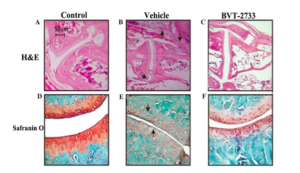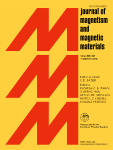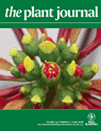A paper on a way to inhibit arthritis has been retracted following an investigation confirming that it plagiarizes a figure from another paper on the same topic.
The paper, “Blockade of 11β-hydroxysteroid dehydrogenase type 1 enzyme inhibits experimental collagenase-induced osteoarthritis,” was published in Molecular Medicine Reports. A figure claims to show cartilage treated with a specific inhibitor:
The retraction note tells us that the authors reproduced the figure from another paper in Inflammation — which describes a different inhibitor:










